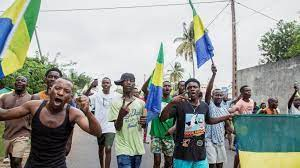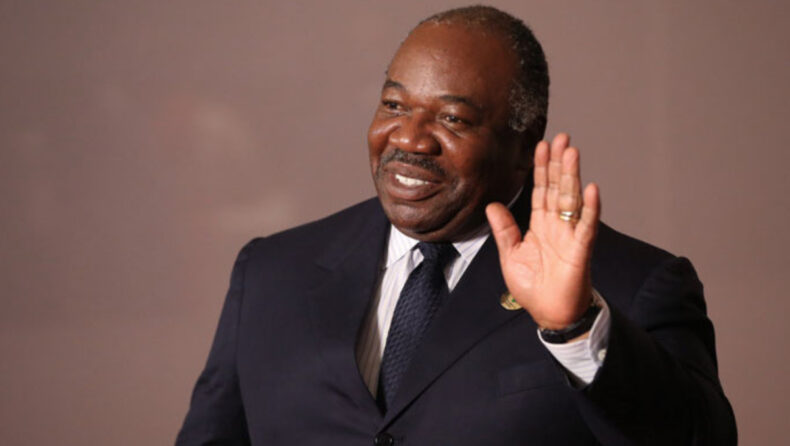Military personnel in Gabon have taken control of the government, effectively confining President Ali Bongo to his residence. This action follows his declaration as the victor in a contested election. This incident adds to a recent string of coups witnessed across West and Central Africa.

What went down in Gabon for a military coup?
Rebellious soldiers in Gabon have declared the leader of the republican guard as the new head of the nation on Wednesday. This move comes after they confined President Ali Bongo Ondimba, who had recently won reelection, to his residence. The soldiers have accused him of betraying the country and engaging in significant embezzlement throughout his extended rule over the oil-rich nation in Central Africa.
In a statement broadcasted on Gabon’s state television, the leaders of the coup revealed that General Brice Clotaire Oligui Nguema had been chosen as the president of a transitional committee with unanimous agreement. This committee is tasked with guiding the nation during this period. Notably, Oligui is a cousin of President Bongo, who had earlier on the same Wednesday been announced as the victor in the most recent presidential election. This election marked the continuation of a 55-year period during which both Bongo and his deceased father held power in the country.
In a video captured while under house arrest, President Bongo urged the public to voice their support for him. However, in the capital city, the gathering crowds chose to celebrate the overthrow of a ruling family that has been criticized for amassing wealth from the nation’s resources, even as a significant portion of its citizens face hardships.
Yollande Okomo, positioned before members of the Republican guard who played a pivotal role in orchestrating the takeover, expressed her appreciation, stating, “We’ve been awaiting this moment for a considerable duration. Thank you, army.”
The leaders behind the coup have announced a curfew spanning from 6 pm to 6 am local time. However, they have assured citizens that they will be allowed unrestricted movement during the daytime on Thursday. Speaking on Gabon’s state television, Lt. Col. Ulrich Manfoumbi, representing the transitional president, emphasized the necessity of maintaining a sense of tranquility and poise within the nation. He conveyed, “As we enter a new era, we are committed to ensuring the peace, stability, and honor of our beloved Gabon.”

How does this translate for Gabon?
Oligui, the newly-appointed military leader, previously held the position of the late President Omar Bongo’s bodyguard. Desire Ename, a journalist from a local media outlet called Echos du Nord, provided this insight. Oligui’s career trajectory also includes his role as the head of the secret service in 2019 before assuming the leadership of the republican guard.
Ali Bongo Ondimba, aged 64, has been in office for two terms since taking power in 2009 following his father’s passing. His father had ruled the nation for a span of 41 years. Throughout his tenure, there has been widespread dissatisfaction with his governance. It’s worth noting that a separate faction of mutinous soldiers had attempted a coup in 2019, but their effort was swiftly quelled.
In the streets of Libreville, the capital of Gabon, hundreds of people rejoiced over the military’s intervention. Meanwhile, both the United Nations and the African Union, along with France—Gabon’s former colonial ruler, which maintains troops there—condemned the coup.
This occurrence marks the eighth instance of a military takeover in West and Central Africa since 2020. It also becomes the second coup in as many months, the first being in Niger. A series of coups, including those witnessed in Mali, Guinea, Burkina Faso, and Chad, have undone the democratic advancements made since the 1990s. These unfolding events have stirred apprehensions among foreign powers that hold strategic interests within the region.
Jules Lebigui, a 27-year-old unemployed individual who participated in the gatherings in Libreville, expressed his sentiments, stating, “My reason for marching today is pure joy. After nearly six decades, the Bongos are no longer in power.”












